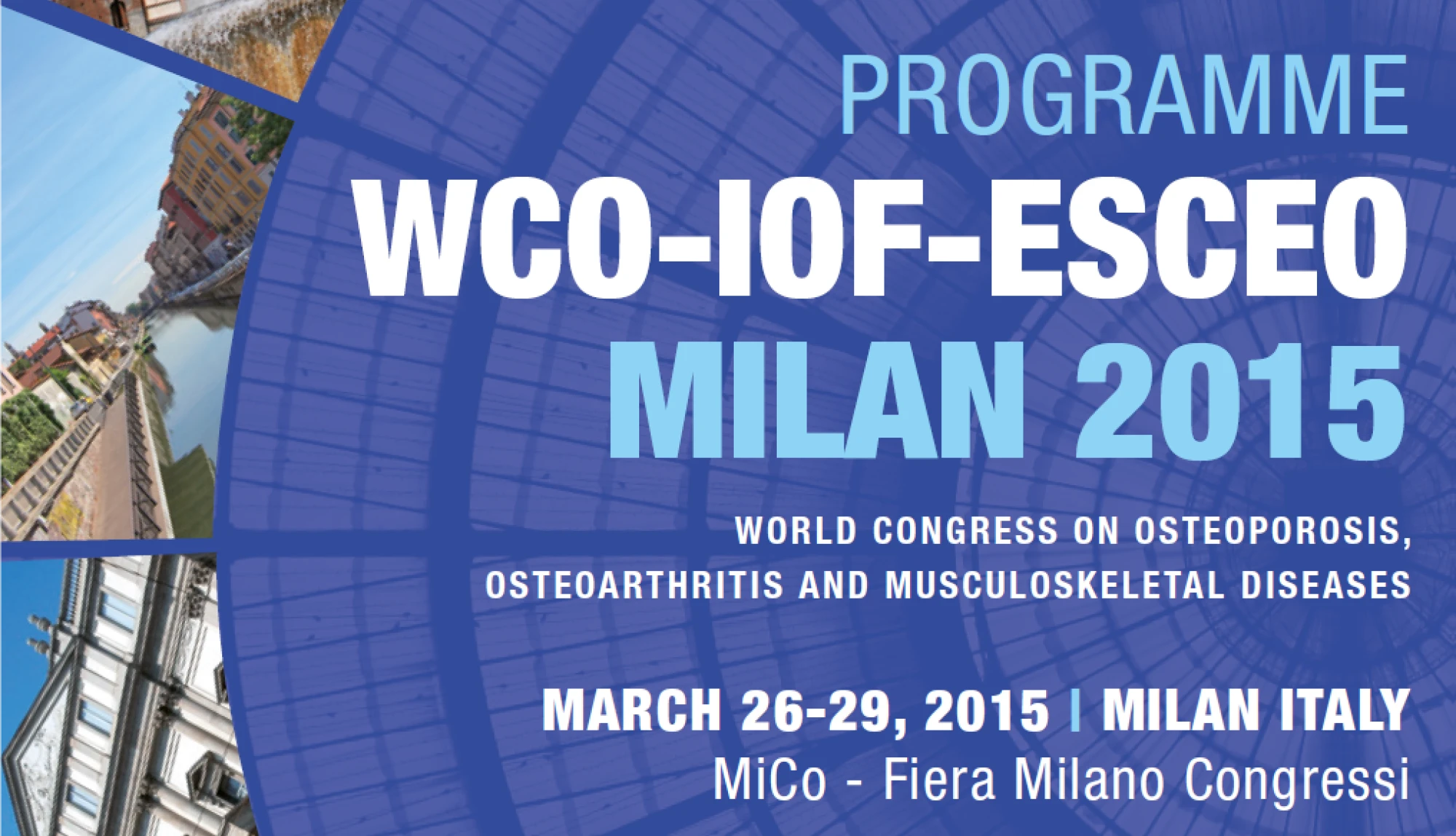“This conference was an opportunity to make a serious scientific evaluation of the subject of osteoporosis, which is a real public health issue, both from a human and an economic stand point”.
Dairy and Bone Health, Milan 2015
The European Milk Forum, which includes the Dairy Council for Northern Ireland, together with the Global Dairy Platform and the French Dairy Council, CERIN, hosted a scientific symposium at the World Congress on Osteoporosis, Osteoarthritis and Musculoskeletal Diseases in Milan, Italy on 25 March 2015.
The symposium was chaired by Jean–Yves Reginster, ESCEO President and René Rizzoli ESCEO Scientific Committee Chair, and explored the scientific evidence on the relationship between dairy products and bone health.
The speakers were:
Dr Tanis Fenton, University of Calgary, Canada
Dairy products and acid–base balance: hypothesis versus scientific evidence
Prof Olivier Bruyere, University of Leige, Belgium
Dairy consumption, prevention of osteoporosis and fractures: an update
Dr Jean–Jacques Body, Universite Libre de Brussels, Belgium
Dairy products: facts and fiction
Symposium chair Professor Reginster, who is also Head of Bone Diseases at the University Hospital and Professor of Epidemiology at the University of Liege, Belgium provided a summary of the symposium.
Click to download his ‘Take–home messages’.
Professor Reginster said:
Dr Olivier Bruyère added:
“The risk of bone fracture depends on both the peak bone mass reached at the end of the growth period and the percentage of bone loss associated with menopause and/or the age of the subject”.
During childhood and adolescence, the favorable effects of milk and dairy products on bone health are well established. In adults, dairy products have a beneficial effect on bone mineral density and blood markers of bone metabolism. In relation to bone fracture, the epidemiological data are scarce and sometimes contradictory; only long–term intervention studies and randomized trials can establish a cause and effect relationship, but these are not feasible in humans. However, such studies are available for calcium and vitamin D and meta–analyses show that supplementation with calcium and vitamin D significantly reduces the risk of osteoporosis and fracture.
Dr Tanis Fenton said:
“Good quality studies have shown that the modern diet does not acidify the body and has no negative effect on bone. What you eat can alter the pH level of your urine, but not of your blood. That is fortunate otherwise the human species would have disappeared a long time ago”.
Professor Bruyère added:
“Dairy products are important for bone health because they are rich in essential nutrients. It would be desirable to develop public health strategies to ensure that the recommendation to consume 3 dairy products a day is applied.’
Professor Reginster confirmed:
“We must always prioritise food, and dairy products are the best source of calcium. In the case of osteoporosis, treatment is only effective if dietary calcium intakes are adequate”.
Health Professionals
This section of our website is specifically for nutrition and health professionals to help keep you up to date with the latest nutrition research, particularly in relation to milk and dairy products. You’ll find summaries and presentations from our conferences and events, together with scientific overviews of dairy and health topics.
